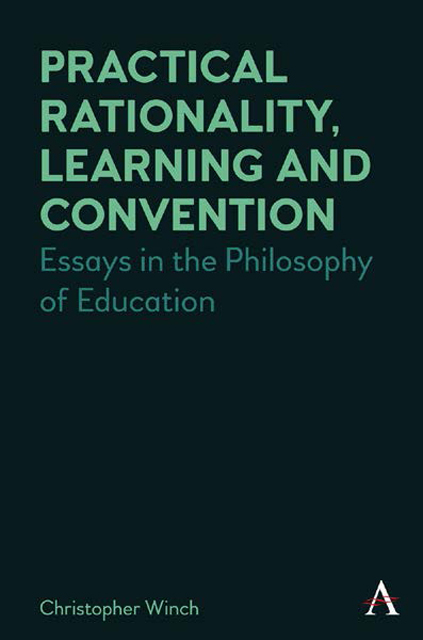Chapter Fourteen - Curriculum Design and Epistemic Ascent
Published online by Cambridge University Press: 09 December 2022
Summary
Introduction
Academic subjects are generally assumed to be composed of propositional rather than practical knowledge. One of the insights of Paul Hirst was, however, that they are also practices with procedures for validating and establishing truths which are themselves constituted by a closely connected conceptual structure (cf. Hamm, 1989: 68– 69). Mastering this structure involves inferential ability, itself a form of practical knowledge, just as the ability to validate and establish truths demands a variety of forms of practical ability. This article examines the relationship between subject knowledge, inferential ability and ability to validate and establish truths in the perspective of an ascent from novice to expert within a subject. It is argued that a key feature of good curriculum design is the ability to manage the different types of knowledge in a sequence that matches not just the needs of the subject, but also that of the student, so that the different kinds of disciplinary knowledge are introduced in such a way that the development of expertise is not compromised. Examples of problems with curriculum design are discussed.
Three Kinds of Knowledge in the Curriculum
Epistemology has traditionally distinguished three distinct if related kinds of knowledge: knowledge by acquaintance, propositional knowledge and knowledge how. Each of these is important for curriculum design. Their relationships with each other are, however, just as important.
Knowledge by acquaintance
I see a person, hear a symphony, smell a flower and taste a fruit. When a person does these things they are said to be acquainted with them. The primary mode of knowledge by acquaintance is through the senses and these need not be just one sense. One may be acquainted with objects, events, processes, states and persons in this way. Knowledge by acquaintance is important because it encompasses qualities and characteristics of what is known that could not be understood in any other way. It is possible to describe the beauty of a landscape, for example, without capturing what the observer takes to be its most significant qualities: the colours, the vista, the atmospheric conditions and, perhaps also, the accompanying sounds and smells that are also significant elements of the experience. In this sense, knowledge by acquaintance cannot be fully supplanted by a full and accurate, or even a sensitive, description.
- Type
- Chapter
- Information
- Practical Rationality, Learning and ConventionEssays in the Philosophy of Education, pp. 197 - 212Publisher: Anthem PressPrint publication year: 2022



